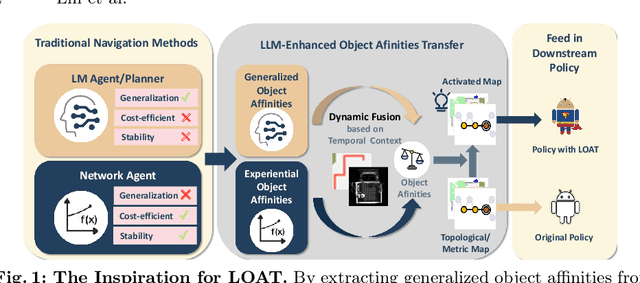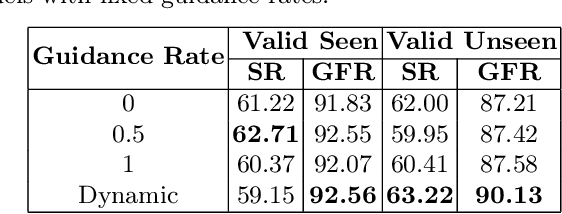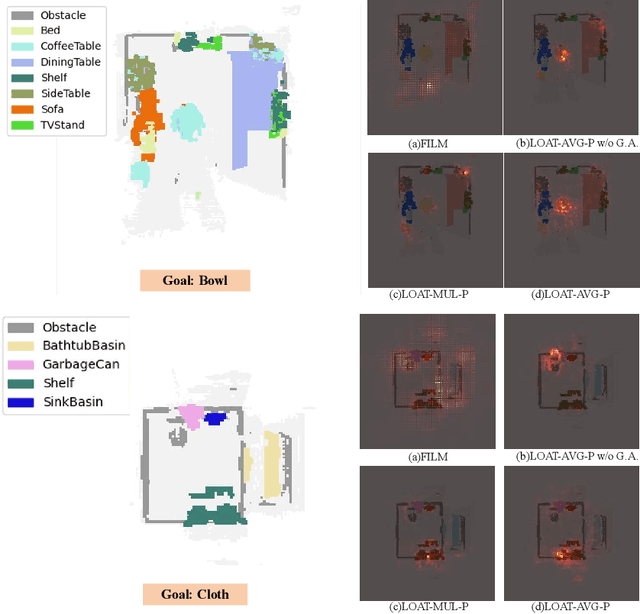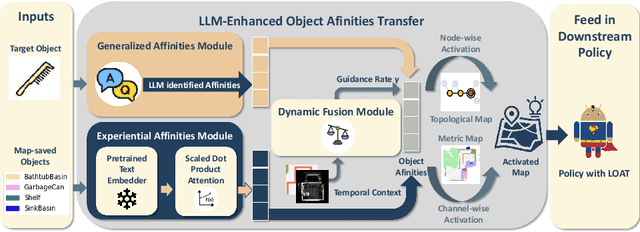Mengying Lin
Advancing Object Goal Navigation Through LLM-enhanced Object Affinities Transfer
Mar 15, 2024



Abstract:In object goal navigation, agents navigate towards objects identified by category labels using visual and spatial information. Previously, solely network-based methods typically rely on historical data for object affinities estimation, lacking adaptability to new environments and unseen targets. Simultaneously, employing Large Language Models (LLMs) for navigation as either planners or agents, though offering a broad knowledge base, is cost-inefficient and lacks targeted historical experience. Addressing these challenges, we present the LLM-enhanced Object Affinities Transfer (LOAT) framework, integrating LLM-derived object semantics with network-based approaches to leverage experiential object affinities, thus improving adaptability in unfamiliar settings. LOAT employs a dual-module strategy: a generalized affinities module for accessing LLMs' vast knowledge and an experiential affinities module for applying learned object semantic relationships, complemented by a dynamic fusion module harmonizing these information sources based on temporal context. The resulting scores activate semantic maps before feeding into downstream policies, enhancing navigation systems with context-aware inputs. Our evaluations in AI2-THOR and Habitat simulators demonstrate improvements in both navigation success rates and efficiency, validating the LOAT's efficacy in integrating LLM insights for improved object goal navigation.
 Add to Chrome
Add to Chrome Add to Firefox
Add to Firefox Add to Edge
Add to Edge